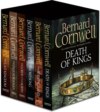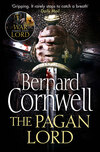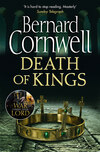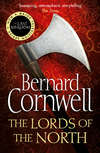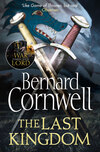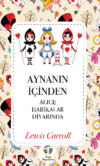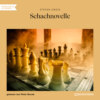Kitabı oku: «The Last Kingdom Series Books 1-6», sayfa 20
Yet, next morning, he summoned me after prayers and we walked up and down outside the royal tent where the dragon banner flew in the autumn sun. ‘The fleet,’ Alfred said, frowning, ‘can it prevent the Danes leaving the Poole?’
‘No, lord.’
‘No?’ That was said sharply. ‘Why not?’
‘Because, lord,’ I said, ‘we have twelve ships and they have over two hundred. We could kill a few of them, but in the end they’ll overwhelm us and you won’t have any fleet left and they’ll still have more than two hundred ships.’
I think Alfred knew that, but he still did not like my answer. He grimaced, then walked in silence for a few more paces. ‘I am glad you married,’ he said abruptly.
‘To a debt,’ I said sharply.
He did not like my tone, but allowed it. ‘The debt, Uhtred,’ he said reprovingly, ‘is to the church, so you must welcome it. Besides, you’re young, you have time to pay. The Lord, remember, loves a cheerful giver.’ That was one of his favourite sayings and if I heard it once I heard it a thousand times. He turned on his heel, then looked back. ‘I shall expect your presence at the negotiations,’ he said, but did not explain why, nor wait for any response, but just walked on.
He and Guthrum were talking. A canopy had been raised between Alfred’s camp and Werham’s western wall, and it was beneath that shelter that a truce was being hammered out. Alfred would have liked to assault Werham, but the approach was narrow, the wall high and in very good repair, and the Danes were numerous. It would have been a very risky fight, and one that the Danes could expect to win, and so Alfred had abandoned the idea. As for the Danes, they were trapped. They had been relying on Halfdan coming to attack Alfred in the rear, but Halfdan was dead in Ireland, and Guthrum’s men were too many to be carried away on their ships, big as their fleet was, and if they tried to break out by land they would be forced to fight Alfred on the narrow strip of land between the two rivers, and that would cause a great slaughter. I remembered Ravn telling me how the Danes feared to lose too many men for they could not replace them quickly. Guthrum could stay where he was, of course, but then Alfred would besiege him and Alfred had already ordered that every barn, granary or store-house within raiding distance of the Poole was to be emptied. The Danes would starve in the coming winter.
Which meant that both sides wanted peace, and Alfred and Guthrum had been discussing terms, and I arrived just as they were finishing the discussions. It was already too late in the year for the Danish fleet to risk a long journey around Wessex’s southern coast, and so Alfred had agreed that Guthrum could remain in Werham through the winter. He also agreed to supply them with food on condition that they made no raids, and he agreed to give them silver because he knew the Danes always wanted silver, and in return they promised that they would stay peaceably in Werham and leave peaceably in the spring when their fleet would go back to East Anglia and the rest of their army would march north through Wessex, guarded by our men, until they reached Mercia.
No one, on either side, believed the promises, so they had to be secured, and for that each side demanded hostages, and the hostages had to be of rank, or else their lives would be security for nothing. A dozen Danish Earls, none of whom I knew, were to be delivered to Alfred, and an equivalent number of English nobles given to Guthrum.
Which was why I had been summoned. Which was why Alfred had been so distant with me, for he knew all along that I was to be one of the hostages. My use to him had lessened that year, because of the fleet’s impotence, but my rank still had bargaining power, and so I was among the chosen. I was Ealdorman Uhtred, and only useful because I was a noble, and I saw Odda the Younger smiling broadly as my name was accepted by the Danes.
Guthrum and Alfred then swore oaths. Alfred insisted that the Danish leader made his oath with one hand on the relics that Alfred always carried in his baggage. There was a feather from the dove that Noah had released from the ark, a glove that had belonged to Saint Cedd and, most sacred of all, a toe-ring that had belonged to Mary Magdalene. The holy ring, Alfred called it, and a bemused Guthrum put his hand on the scrap of gold and swore he would keep his promises, then insisted that Alfred put a hand on the bone he hung in his hair and he made the King of Wessex swear on a dead Danish mother that the West Saxons would keep the treaty. Only when those oaths were made, sanctified by the gold of a saint and the bone of a mother, were the hostages exchanged, and as I walked across the space between the two sides Guthrum must have recognised me for he gave me a long, contemplative look, and then we were escorted, with ceremony, to Werham.
Where Earl Ragnar, son of Ragnar, welcomed me.
There was joy in that meeting. Ragnar and I embraced like brothers, and I thought of him as a brother, and he thumped my back, poured ale, and gave me news. Kjartan and Sven still lived and were still in Dunholm. Ragnar had confronted them in a formal meeting where both sides were forbidden to carry weapons, and Kjartan had sworn that he was innocent of the hall-burning and declared he knew nothing of Thyra. ‘The bastard lied,’ Ragnar told me, ‘and I know he lied. And he knows he will die.’
‘But not yet?’
‘How can I take Dunholm?’
Brida was there, sharing Ragnar’s bed, and she greeted me warmly, though not as hotly as Nihtgenga who leaped all over me and washed my face with his tongue. Brida was amused that I was going to be a father. ‘But it will be good for you,’ she said.
‘Good for me? Why?’
‘Because you’ll be a proper man.’
I thought I was that already, yet there was still one thing lacking, one thing I had never confessed to anyone, not to Mildrith, not to Leofric, and not now to Ragnar or Brida. I had fought the Danes, I had seen ships burn and watched men drown, but I had never fought in a great shield wall. I had fought in small ones, I had fought ship’s crew against ship’s crew, but I had never stood on a wide battlefield and watched the enemy’s banners hide the sun, and known the fear that comes when hundreds or thousands of men are coming to the slaughter. I had been at Eoferwic and at Æsc’s Hill and I had seen the shield walls clash, but I had not been in the front rank. I had been in fights, but they had all been small and small fights end quickly. I had never endured the long blood-letting, the terrible fights when thirst and weariness weaken a man and the enemy, no matter how many you kill, keeps on coming. Only when I had done that, I thought, could I call myself a proper man.
I missed Mildrith, and that surprised me. I also missed Leofric, though there was huge pleasure in Ragnar’s company, and the life of a hostage was not hard. We lived in Werham, received enough food and watched the grey of winter shorten the days. One of the hostages was a cousin of Alfred’s, a priest called Wælla, who fretted and sometimes wept, but the rest of us were content enough. Hacca, who had once commanded Alfred’s fleet, was among the hostages, and he was the only one I knew well, but I spent my time with Ragnar and his men who accepted me as one of them and even tried to make me a Dane again. ‘I have a wife,’ I told them.
‘So bring her!’ Ragnar said. ‘We never have enough women.’
But I was English now. I did not hate the Danes, indeed I preferred their company to the company of the other hostages, but I was English. That journey was done. Alfred had not changed my allegiance, but Leofric and Mildrith had, or else the three spinners had become bored with teasing me, though Bebbanburg still haunted me and I did not know how, if I was to keep my loyalty to Alfred, I would ever see that lovely place again.
Ragnar accepted my choice. ‘But if there’s peace,’ he said, ‘will you help me fight Kjartan?’
‘If?’ I repeated the word.
He shrugged. ‘Guthrum still wants Wessex. We all do.’
‘If there’s peace,’ I promised, ‘I will come north.’
Yet I doubted there would be peace. In the spring Guthrum would leave Wessex, the hostages would be freed, and then what? The Danish army still existed and Ubba yet lived, so the onslaught on Wessex must begin again, and Guthrum must have been thinking the same for he talked with all the hostages in an effort to discover Alfred’s strength. ‘It is a great strength,’ I told him, ‘you may kill his army and another will spring up.’ It was all nonsense, of course, but what else did he expect me to say?
I doubt I convinced Guthrum, but Wælla, the priest who was Alfred’s cousin, put the fear of God into him. Guthrum spent hours talking with Wælla, and I often interpreted for him, and Guthrum was not asking about troops or ships, but about God. Who was the Christian god? What did he offer? He was fascinated by the tale of the crucifixion and I think, had we been given time enough, Wælla could even have persuaded Guthrum to convert. Wælla certainly thought so himself for he enjoined me to pray for such a conversion. ‘It’s close, Uhtred,’ he told me excitedly, ‘and once he has been baptised then there will be peace!’
Such are the dreams of priests. My dreams were of Mildrith and the child she carried. Ragnar dreamed of revenge. And Guthrum?
Despite his fascination with Christianity, Guthrum dreamed of just one thing.
He dreamed of war.
PART THREE
The Shield Wall

Ten
Alfred’s army withdrew from Werham. Some West Saxons stayed to watch Guthrum, but very few, for armies are expensive to maintain and, once gathered, they always seem to fall sick, so Alfred took advantage of the truce to send the men of the fyrds back to their farms while he and his household troops went to Scireburnan that lay a half-day’s march north-west of Werham and, happily for Alfred, was home to a bishop and a monastery. Beocca told me that Alfred spent that winter reading the ancient law codes from Kent, Mercia and Wessex, and doubtless he was readying himself to compile his own laws, which he eventually did. I am certain he was happy that winter, criticising his ancestors’ rules and dreaming of the perfect society where the church told us what not to do and the king punished us for doing it.
Huppa, Ealdorman of Thornsæta, commanded the few men who were left facing Werham’s ramparts, while Odda the Younger led a troop of horsemen who patrolled the shores of the Poole, but the two bands made only a small force and they could do little except keep an eye on the Danes, and why should they do more? There was a truce, Guthrum had sworn on the holy ring, and Wessex was at peace.
The Yule feast was a thin affair in Werham, though the Danes did their best and at least there was plenty of ale so men got drunk, but my chief memory of that Yule is of Guthrum crying. The tears poured down his face as a harpist played a sad tune and a skald recited a poem about Guthrum’s mother. Her beauty, the skald said, was rivalled only by the stars, while her kindness was such that flowers sprang up in winter to pay her homage. ‘She was a rancid bitch,’ Ragnar whispered to me, ‘and ugly as a bucket of shit.’
‘You knew her?’
‘Ravn knew her. He always said she had a voice that could cut down a tree.’
Guthrum was living up to his name ‘the Unlucky’. He had come so close to destroying Wessex and it had only been Halfdan’s death that had cheated him of the prize, and that was not Guthrum’s fault, yet there was a simmering resentment among the trapped army. Men muttered that nothing could ever prosper under Guthrum’s leadership, and perhaps that distrust had made him gloomier than ever, or perhaps it was hunger.
For the Danes were hungry. Alfred kept his word and sent food, but there was never quite enough, and I did not understand why the Danes did not eat their horses that were left to graze on the winter marshes between the fortress and the Poole. Those horses grew desperately thin, their pathetic grazing supplemented by what little hay the Danes had discovered in the town and when that was gone they pulled the thatch from some of Werham’s houses, and that poor diet kept the horses alive until the first glimmerings of spring. I welcomed those new signs of the turning year; the song of a missel thrush, the dog violets showing in sheltered spots, the lambs’ tails on the hazel trees and the first frogs croaking in the marsh. Spring was coming, and when the land was green Guthrum would leave and we hostages would be freed.
We received little news other than what the Danes told us, but sometimes a message was delivered to one or other of the hostages, usually nailed to a willow tree outside the gate, and one such message was addressed to me and, for the first time, I was grateful that Beocca had taught me to read for Father Willibald had written and told me I had a son. Mildrith had given birth before Yule and the boy was healthy and she was also healthy and the boy was called Uhtred. I wept when I read that. I had not expected to feel so much, but I did, and Ragnar asked why I was crying and I told him and he produced a barrel of ale and we gave ourselves a feast, or as much of a feast as we could make, and he gave me a tiny silver arm ring as a gift for the boy. I had a son. Uhtred.
Next day I helped Ragnar relaunch Wind-Viper. She had been dragged ashore so her timbers could be caulked, and we stowed her bilges with the stones that served as ballast and rigged her mast and afterwards killed a hare that we had trapped in the fields where the horses tried to graze, and Ragnar poured the hare’s blood on the Wind-Viper’s stem and called on Thor to send her fair winds and for Odin to send her great victories. We ate the hare that night and drank the last of the ale, and next morning a dragon boat arrived, coming from the sea, and I was amazed that Alfred had not ordered our fleet to patrol the waters off the Poole’s mouth, but none of our boats was there, and so that single Danish ship came upriver and brought a message for Guthrum.
Ragnar was vague about the ship. It came from East Anglia, he said, which turned out to be untrue, and merely brought news of that kingdom, which was equally untrue. It had come from the west, around Cornwalum, from the lands of the Welsh, but I only learned that later and, at the time, I did not care, because Ragnar also told me that we should be leaving soon, very soon, and I only had thoughts for the son I had not seen. Uhtred Uhtredson.
That night Guthrum gave the hostages a feast, a good feast too, with food and ale that had been brought on the newly arrived dragon ship, and Guthrum praised us for being good guests and he gave each of us an arm ring, and promised we would all be free soon. ‘When?’ I asked.
‘Soon!’ His long face glistened in the firelight as he raised a horn of ale to me. ‘Soon! Now drink!’
We all drank, and after the feast we hostages went to the nunnery’s hall where Guthrum insisted we slept. In the daytime we were free to roam wherever we wanted inside the Danish lines, and free to carry weapons if we chose, but at night he wanted all the hostages in one place so that his black-cloaked guards could keep an eye on us, and it was those guards who came for us in the night’s dark heart. They carried flaming torches and they kicked us awake, ordering us outside, and one of them kicked Serpent-Breath away when I reached for her. ‘Get outside,’ he snarled, and when I reached for the sword again a spear stave cracked across my skull and two more spears jabbed my arse, and I had no choice but to stumble out of the door into a gusting wind that was bringing a cold, spitting rain, and the wind tore at the flaming torches which lit the street where at least a hundred Danes waited, all armed, and I could see they had saddled and bridled their thin horses and my first thought was that these were the men who would escort us back to the West Saxon lines.
Then Guthrum, cloaked in black, pushed through the helmeted men. No words were spoken. Guthrum, grim-faced, the white bone in his hair, just nodded, and his black-cloaked men drew their swords and poor Wælla, Alfred’s cousin, was the first hostage to die. Guthrum winced slightly at the priest’s death, for I think he had liked Wælla, but by then I was turning, ready to fight the men behind me even though I had no weapon and knew that fight could only end with my death. A sword was already coming for me, held by a Dane in a leather jerkin that was studded with metal rivets, and he was grinning as he ran the blade towards my unprotected belly and he was still grinning as the throwing axe buried its blade between his eyes. I remember the thump of that blade striking home, the spurt of blood in the flamelight, the noise as the man fell onto the flint and shingle street, and all the while the frantic protests from the other hostages as they were murdered, but I lived. Ragnar had hurled the axe and now stood beside me, sword drawn. He was in his war gear, in polished chain mail, in high boots and a helmet which he had decorated with a pair of eagle wings, and in the raw light of the wind-fretted fires he looked like a god come down to Midgard.
‘They must all die,’ Guthrum insisted. The other hostages were dead or dying, their hands bloodied from their hopeless attempts to ward off the blades, and a dozen war Danes, swords red, now edged towards me to finish the job.
‘Kill this one,’ Ragnar shouted, ‘and you must kill me first.’ His men came out of the crowd to stand beside their lord. They were outnumbered by at least five to one, but they were Danes and they showed no fear.
Guthrum stared at Ragnar. Hacca was still not dead and he twitched in his agony and Guthrum, irritated that the man lived, drew his sword and rammed it into Hacca’s throat. Guthrum’s men were stripping the arm rings from the dead, rings that had been gifts from their master just hours before. ‘They all must die,’ Guthrum said when Hacca was still. ‘Alfred will kill our hostages now, so it must be man for man.’
‘Uhtred is my brother,’ Ragnar said, ‘and you are welcome to kill him, lord, but you must first kill me.’
Guthrum stepped back. ‘This is no time for Dane to fight Dane,’ he said grudgingly, and sheathed his sword to show that I could live. I stepped across the street to find the man who had stolen Serpent-Breath, Wasp-Sting and my armour, and he gave them to me without protest.
Guthrum’s men were mounting their horses. ‘What’s happening?’ I asked Ragnar.
‘What do you think?’ he asked truculently.
‘I think you’re breaking the truce.’
‘We did not come this far,’ he said, ‘to march away like beaten dogs.’ He watched as I buckled Serpent-Breath’s belt. ‘Come with us,’ he said.
‘Come with you where?’
‘To take Wessex, of course.’
I do not deny that there was a tug on my heart strings, a temptation to join the wild Danes in their romp across Wessex, but the tug was easily resisted. ‘I have a wife,’ I told him, ‘a child.’
He grimaced. ‘Alfred has trapped you, Uhtred.’
‘No,’ I said, ‘the spinners did that.’ Urðr, Verðandi and Skuld, the three women who spin our threads at the foot of Yggdrasil, had decided my fate. Destiny is all. ‘I shall go to my woman,’ I said.
‘But not yet,’ Ragnar said with a half-smile, and he took me to the river where a small boat carried us to where the newly launched Wind-Viper was anchored. A half-crew was already aboard, as was Brida, who gave me a breakfast of bread and ale. At first light, when there was just enough grey in the sky to reveal the glistening mud of the river’s banks, Ragnar ordered the anchor raised and we drifted downstream on current and tide, gliding past the dark shapes of other Danish ships until we came to a reach wide enough to turn Wind-Viper and there the oars were fitted, men tugged and she swivelled gracefully, both oar banks began to pull and she shot out into the Poole where most of the Danish fleet rode at anchor. We did not go far, just to the barren shore of a big island that sits in the centre of the Poole, a place of squirrels, seabirds and foxes. Ragnar let the ship glide towards the shore and, when her prow touched the beach, he embraced me. ‘You are free,’ he said.
‘Thank you,’ I said fervently, remembering those bloodied corpses by Werham’s nunnery.
He held onto my shoulders. ‘You and I,’ he said, ‘are tied as brothers. Don’t forget that. Now go.’
I splashed through the shallows as the Wind-Viper, a ghostly grey in the dawn, backed away. Brida called a farewell, I heard the oars bite and the ship was gone.
That island was a forbidding place. Fishermen and fowlers had lived there once, and an anchorite, a monk who lives by himself, had occupied a hollow tree in the island’s centre, but the coming of the Danes had driven them all away and the remnants of the fishermen’s houses were nothing but charred timbers on blackened ground. I had the island to myself, and it was from its shore that I watched the vast Danish fleet row towards the Poole’s entrance, though they stopped there rather than go to sea because the wind, already brisk, had freshened even more and now it was a half-gale blowing from the south and the breakers were shattering wild and white above the spit of sand that protected their new anchorage. The Danish fleet had moved there, I surmised, because to stay in the river would have exposed their crews to the West Saxon bowmen who would be among the troops reoccupying Werham.
Guthrum had led his horsemen out of Werham, that much was obvious, and all the Danes who had remained in the town were now crammed onto the ships where they waited for the weather to calm so they could sail away, but to where, I had no idea.
All day that south wind blew, getting harder and bringing a slashing rain, and I became bored of watching the Danish fleet fret at its anchors and so I explored the island’s shore and found the remnants of a small boat half hidden in a thicket and I hauled the wreck down to the water and discovered it floated well enough, and the wind would take me away from the Danes and so I waited for the tide to turn and then, half swamped in the broken craft, I floated free. I used a piece of wood as a crude paddle, but the wind was howling now and it drove me wet and cold across that wide water until, as night fell, I came to the Poole’s northern shore and there I became one of the sceadugengan again, picking my way through reeds and marshes until I found higher ground where bushes gave me shelter for a broken sleep. In the morning I walked eastwards, still buffeted by wind and rain, and so came to Hamtun that evening.
Where I found that Mildrith and my son were gone.
Taken by Odda the Younger.
Father Willibald told me the tale. Odda had come that morning, while Leofric was down at the shore securing the boats against the bruising wind, and Odda had said that the Danes had broken out, that they would have killed their hostages, that they might come to Hamtun at any moment, and that Mildrith should flee. ‘She did not want to go, lord,’ Willibald said, and I could hear the timidity in his voice. My anger was frightening him. ‘They had horses, lord,’ he said, as if that explained it.
‘You didn’t send for Leofric?’
‘They wouldn’t let me, lord.’ He paused. ‘But we were scared, lord. The Danes had broken the truce and we thought you were dead.’
Leofric had set off in pursuit, but by the time he learned Mildrith was gone Odda had at least a half-morning’s start and Leofric did not even know where he would have gone. ‘West,’ I said, ‘back to Defnascir.’
‘And the Danes?’ Leofric asked, ‘where are they going?’
‘Back to Mercia?’ I guessed.
Leofric shrugged. ‘Across Wessex? With Alfred waiting? And you say they went on horseback? How fit were the horses?’
‘They weren’t fit. They were half starved.’
‘Then they haven’t gone to Mercia,’ he said firmly.
‘Perhaps they’ve gone to meet Ubba,’ Willibald suggested.
‘Ubba!’ I had not heard that name in a long time.
‘There were stories, lord,’ Willibald said nervously, ‘that he was among the Britons in Wales. That he had a fleet on the Sæfern.’
That made sense. Ubba was replacing his dead brother, Halfdan, and evidently leading another force of Danes against Wessex, but where? If he crossed the Sæfern’s wide sea then he would be in Defnascir, or perhaps he was marching around the river, heading into Alfred’s heartland from the north, but for the moment I did not care. I only wanted to find my wife and child. There was pride in that desire, of course, but more than pride. Mildrith and I were suited to each other, I had missed her, I wanted to see my child. That ceremony in the rain-dripping cathedral had worked its magic and I wanted her back and I wanted to punish Odda the Younger for taking her away. ‘Defnascir,’ I said again, ‘that’s where the bastard’s gone. And that’s where we go tomorrow.’ Odda, I was certain, would head for the safety of home. Not that he feared my revenge, for he surely assumed I was dead, but he would be worried about the Danes, and I was worried that they might have found him on his westward flight.
‘You and me?’ Leofric asked.
I shook my head. ‘We take Heahengel and a full fighting crew.’
Leofric looked sceptical. ‘In this weather?’
‘The wind’s dropping,’ I said, and it was, though it still tugged at the thatch and rattled the shutters, but it was calmer next morning, but not by much for Hamtun’s water was still flecked white as the small waves ran angrily ashore, suggesting that the seas beyond the Solente would be huge and furious. But there were breaks in the cloud, the wind had gone into the east, and I was in no mood to wait. Two of the crew, both seamen all their lives, tried to dissuade me from the voyage. They had seen this weather before, they said, and the storm would come back, but I refused to believe them and they, to their credit, came willingly as did Father Willibald, which was brave of him for he hated the sea and was facing rougher water than any he had seen before.
We rowed up Hamtun’s water, hoisted the sail in the Solente, brought the oars inboard and ran before that east wind as though the serpent Corpse-Ripper was at our stern. Heahengel hammered through the short seas, threw the white water high, raced, and that was while we were still in sheltered waters. Then we passed the white stacks at Wiht’s end, the rocks that are called the Nædles, and the first tumultuous seas hit us and the Heahengel bent to them. Yet still we flew, and the wind was dropping and the sun shone through rents in the dark clouds to glitter on the churning sea, and Leofric suddenly roared a warning and pointed ahead.
He was pointing to the Danish fleet. Like me they believed the weather was improving, and they must have been in a hurry to join Guthrum, for the whole fleet was coming out of the Poole and was now sailing south to round the rocky headland, which meant, like us, they were going west. Which could mean they were going to Defnascir or perhaps planning to sail clear about Cornwalum to join Ubba in Wales.
‘You want to tangle with them?’ Leofric asked me grimly.
I heaved on the steering oar, driving us south. ‘We’ll go outside them,’ I said, meaning we would head out to sea and I doubted any of their ships would bother with us. They were in a hurry to get wherever they were going and with luck, I thought, Heahengel would outrun them for she was a fast ship and they were still well short of the headland.
We flew downwind and there was joy in it, the joy of steering a boat through angry seas, though I doubt there was much joy for the men who had to bail Heahengel, chucking the water over the side, and it was one of those men who looked astern and called a sudden warning to me. I turned to see a black squall seething across the broken seas. It was an angry patch of darkness and rain, coming fast, so fast that Willibald, who had been clutching the ship’s side as he vomited overboard, fell to his knees, made the sign of the cross and began to pray. ‘Get the sail down!’ I shouted at Leofric, and he staggered forward, but too late, much too late, for the squall struck.
One moment the sun had shone, then we were abruptly thrust into the devil’s playground as the squall hit us like a shield wall. The ship shuddered, water and wind and gloom smashing us in sudden turmoil and Heahengel swung to the blow, going broadside to the sea and nothing I could do would hold her straight, and I saw Leofric stagger across the deck as the stærbord side went under water. ‘Bail!’ I shouted desperately, ‘bail!’ And then, with a noise like thunder, the great sail split into tatters that whipped off the yard, and the ship came slowly upright, but she was low in the water, and I was using all my strength to keep her coming round, creeping round, reversing our course so that I could put her bows into that turmoil of sea and wind, and the men were praying, making the sign of the cross, bailing water, and the remnants of the sail and the broken lines were mad things, ragged demons, and the sudden gale was howling like the furies in the rigging and I thought how futile it would be to die at sea so soon after Ragnar had saved my life.
Somehow we got six oars into the water and then, with two men to an oar, we pulled into that seething chaos. Twelve men pulled six oars, three men tried to cut the rigging’s wreckage away, and the others threw water over the side. No orders were given, for no voice could be heard above that shrieking wind that was flensing the skin from the sea and whipping it in white spindrift. Huge swells rolled, but they were no danger for the Heahengel rode them, but their broken tops threatened to swamp us, and then I saw the mast sway, its shrouds parting, and I shouted uselessly, for no one could hear me, and the great spruce spar broke and fell. It fell across the ship’s side and the water flowed in again, but Leofric and a dozen men somehow managed to heave the mast overboard and it banged down our flank, then jerked because it was still held to the ship by a tangle of seal-hide ropes. I saw Leofric pluck an axe from the swamped bilge and start to slash at that tangle of lines, but I screamed at him with all my breath to put the axe down.
